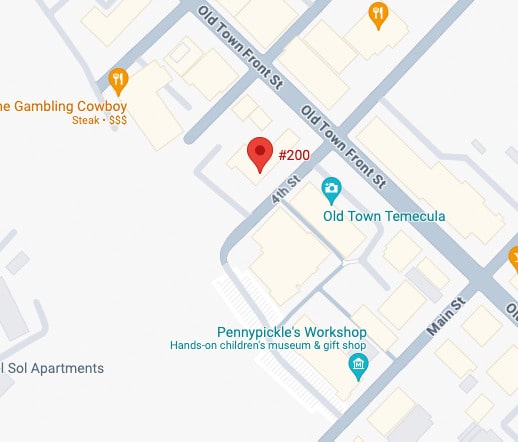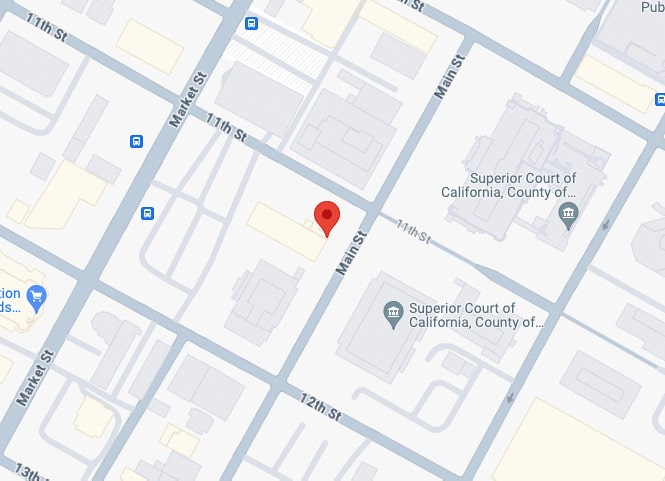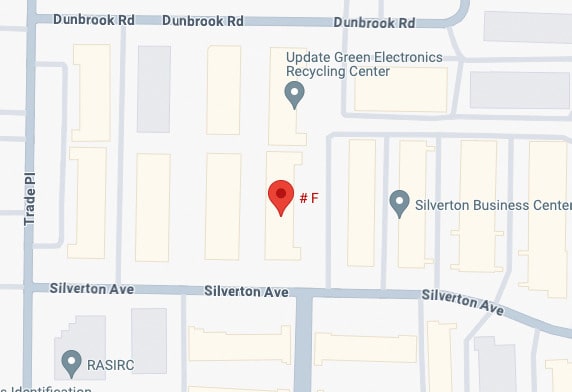Bail bonds serve as a means to secure the release of individuals who have been arrested and are awaiting trial. When you find yourself or someone you know facing a legal predicament, understanding the basics of bail bonds can be crucial.
A bail bond is a financial arrangement between the defendant or their representative and a bail bond service. As the defendant or their representative, you pay a fee to the bail bond company, which guarantees the court that you will appear for all scheduled hearings and proceedings.
Securing a bail bond allows you to be released from custody and return to your daily life while awaiting trial. It offers a temporary respite from the confines of a jail, enabling you to prepare your defense better and maintain personal and professional obligations. Therefore, contact us, Justice Bail Bonds, if you are in Bonita and require bail bond services.
What is a Bail Bond?
A bail bond is a legal instrument that enables you to secure your release from custody while awaiting trial. Understanding the concept and implications of bail bonds is essential, so let us break it down.
The randomness of life can lead to unexpected circumstances, and finding yourself in legal trouble can be unsettling. Bail bonds provide a means to navigate this challenging phase by allowing you to be released from jail.
You obtain a bail bond after paying a premium to a bail bonds company that is a guarantor for your appearance in court. This fee is about 10% of the total bail amount set by the court but could vary depending on the severity of the alleged offense and other relevant factors.
The simplicity and efficiency of a bail bond can be quite reassuring. Rather than paying the full bail upfront, which can be a significant financial burden, you only need to provide a fraction through the bail bondsman. This makes the process more accessible for many individuals who do not have the immediate means to cover the entire bail.
However, it is important to recognize a bail bond's responsibilities and potential consequences. When you secure Bonita bail bonds, you enter into a legally binding agreement to adhere to specific conditions. These include:
- Appearing for all scheduled court proceedings and
- Complying with any other requirements imposed by the court or the Bonita bail bondsman.
Failure to fulfill these obligations can lead to severe repercussions. It can result in the revocation of the bail bond, your re-arrest, and potential additional charges. Therefore, take the terms and conditions seriously and honor them throughout your legal proceedings.
Can I Secure Bail Bonds If I Do Not Have Money?
One advantage of bail bonds is that you do not need to pay the full amount upfront. Instead, you can work with a bail bondsman, who will typically require a percentage, usually around 10%, as a fee. This fee guarantees you will fulfill your legal obligations and appear in court.
But what if you do not have the funds to cover even the percentage required for the bail bond?
In these cases, you could explore alternative solutions. Some Bonita bail bondsmen could be open to alternative forms of collateral or payment arrangements that can accommodate your situation. For instance, you can offer property or valuable assets as collateral instead of cash. This allows the bail bondsman to secure the bond while providing you with the opportunity to obtain your release.
Each situation is unique, and your options could vary depending on the bail bondsman and local regulations. Exploring these possibilities requires open communication with the Bonita bail bonds service to find a solution that works for both parties.
Alternatively, you can use a friend or a loved one to co-sign a bail bond. He/she becomes a co-signer.
A co-signer voluntarily takes on the responsibility of ensuring your compliance with the terms and conditions of the bail bond. A co-signer can be a family member, a close friend, or anyone willing to take on this role. Their primary purpose is to provide additional assurance to the bail bondsman. They act as a guarantor. They assure the bondman that you will comply with all the requirements and attend all your scheduled court appearances.
By co-signing the bail bond, the person agrees to take financial responsibility if you fail to fulfill your obligations. If you do not appear in court as required or violate bail bond conditions, the co-signer could be liable for the full bail amount.
Being a co-signer is a significant commitment. The co-signer should have trust and confidence in your ability to fulfill your obligations. They should also clearly understand the potential consequences they could face if you fail to comply with the bail bond conditions.
The Risks of Securing a Bail Bond
While Bonita bail bonds can provide temporary freedom, they have certain risks. Some of the notable risks include the following:
-
Financial Liability
When you obtain a bail bond, you enter into a legal agreement. If you fail to comply with the bail bond conditions, you could be held financially liable for the full bail amount. This can result in significant financial burdens for you and potentially your co-signer. If you fail to pay the bail, you will remain in jail until the conclusion of your case.
-
Collateral Forfeiture
Bail bond companies often require collateral to secure the bond. If you do not meet your obligations, the bail bondsman could seize the collateral provided. Losing valuable assets can have long-lasting consequences.
-
Legal Consequences
Failing to comply with the conditions of your bail bond can have serious legal ramifications. It can result in the revocation of the bail bond, re-arrest, additional charges, and potential difficulties in your legal case. Prosecutors could add “failure to appear” charges to your charge sheet.
-
Dealing With Bounty Hunters
If you breach the terms of the bail bond and become a fugitive, the Bonita bail bonds service could employ bounty hunters to locate and apprehend you. This can further complicate your situation and increase the likelihood of adverse outcomes.
Remember, securing a bail bond involves accepting certain responsibilities and potential consequences. Consistently adhering to the bail bond conditions and fulfilling your obligations can help mitigate these risks and ensure a smoother legal process.
Benefits of Using Bonita Bail Bonds
Despite the risks of using bail bonds, there are notable benefits to securing a bail bond. These include:
-
Temporary Release
The most significant advantage is being released from custody. A bail bond allows you to regain temporary freedom while awaiting your trial. This means you can continue your daily life, tend to personal responsibilities, and prepare for your legal case.
-
Financial Relief
Paying the full bail amount can be financially burdensome. With a bail bond, you typically pay a percentage, usually around 10%, to the bail bondsman instead. This provides financial relief and enables you to allocate your resources toward legal fees and other essential matters.
-
Professional Guidance
Bail bondsmen are knowledgeable professionals who can guide you through the process. They have expertise in the legal system and can help you understand your obligations, navigate court procedures, and fulfill all requirements.
-
Access to Legal Support
Securing a bail bond allows you to consult legal counsel and build a robust defense strategy. It gives you the opportunity to gather evidence, interview witnesses, and work closely with your attorney to strengthen your case.
-
Reduced Time in Custody
By obtaining a bail bond, you minimize the time spent in jail before your trial. This can alleviate the emotional and physical strain of incarceration and enable you to maintain important connections with your loved ones.
-
Presumption of Innocence
Securing a bail bond reinforces the principle of "innocent until proven guilty." It allows you to exercise your right to freedom while your case progresses through the legal system.
It is important to approach the bail bond process cautiously. Take time to understand the benefits and responsibilities involved. By fulfilling your obligations, complying with the bail bond conditions, and seeking appropriate legal counsel, you can maximize the benefits while navigating the legal proceedings effectively.
Requirements for Securing a Bail Bond in Bonita
When obtaining a bail bond in Bonita, several requirements must be met. Each Bonita bail bondsman has their own set of requirements. However, the most notable include the following:
-
Eligibility for Bail
Eligibility for bail refers to whether or not the defendant can be released from custody while awaiting trial or court proceedings. In most cases, individuals are presumed innocent until proven guilty. Bail upholds this principle while ensuring the defendant’s appearance in court.
To determine eligibility for bail, several factors are taken into consideration, including:
- Nature of the offense — The severity of the alleged crime plays a significant role in determining bail eligibility. Serious crimes, for example, capital or violent crimes, have restrictions or require exceptional circumstances to be granted bail.
- Flight risk — The likelihood of a defendant fleeing or not appearing in court is assessed to determine bail eligibility. Factors considered include the defendant's ties to the community, employment status, criminal history, and any prior failures to appear in court. Specific circumstances related to the defendant's case increase the perception of flight risk. These factors include having significant financial resources, international ties, or a history of traveling to evade authorities.
- Public safety — The potential risk the defendant poses to public safety is considered. If there is a concern that releasing the individual on bail threatens others, the court could deny or set strict conditions for bail.
- Prior criminal record — The defendant's criminal history and any previous failures to comply with court orders or bail conditions can impact their eligibility for bail. Repeat offenders or those with a history of non-compliance face greater scrutiny.
Note: Eligibility for bail is determined on a case-by-case basis, considering each individual's unique circumstances. The court evaluates the relevant factors to make an informed decision that balances the defendant's rights with the interests of justice and public safety.
-
Bail Amount
When it comes to setting bail in Bonita, judges commonly consult a bail schedule. A bail schedule outlines recommended bail amounts for various offenses. It provides a general framework for judges to consider when determining bail. However, judges can deviate from the bail schedule based on specific factors unique to each case. These factors include:
- Aggravating or mitigating circumstances — Judges consider any aggravating factors that warrant a higher bail amount, for example, the severity of the offense or a history of prior convictions. Conversely, they consider mitigating factors that could lead to a lower bail amount, including the defendant's ties to the community or lack of a criminal record.
- Flight risk — The judge assesses the defendant's likelihood of fleeing and not appearing in court. If the judge believes the defendant poses a high flight risk, they could increase the bail amount accordingly.
- Public safety — The potential risk the defendant poses to public safety is another significant consideration. If the judge determines that releasing the defendant on bail could endanger the community, they could set a higher bail amount or deny bail altogether.
- Individual circumstances — Judges consider each case's unique circumstances and the defendant's background. Employment status, family ties, and community involvement influence the judge's decision.
While the bail schedule provides a starting point for bail determination, judges carefully assess the specific details of each case to ensure a fair and just outcome. They have the discretion to adjust the bail amount based on the circumstances and their assessment of the defendant's risk.
-
Collateral
Collateral in a bail bond agreement serves as security for the bail bond and guarantees that you will fulfill your obligations and appear in court. When obtaining a bail bond, the bail bondsman may sometimes require collateral. Collateral is an asset of value pledged to the service as security for the bond.
Collateral can take various forms, including:
- Real Estate — Property, including a house, land, or commercial building, can be used as collateral in a bail bond agreement. The value of the property is assessed to determine its suitability as collateral.
- Vehicles — High-value vehicles, including cars, motorcycles, or boats, can be offered as collateral. The bondsman considers the condition and market value of the vehicle when evaluating its eligibility.
- Financial assets — Bail bond companies accept cash, stocks, bonds, or other financial assets as collateral. The bondsmen consider these assets' value and liquidity during the assessment process.
- Valuables — Valuable items, including jewelry, artwork, or collectibles, can be used as collateral, provided their worth is substantiated and verified.
The collateral is returned to the person who posted it once the case is concluded and all obligations under the bail bond agreement are fulfilled. The collateral serves as a form of security for the bail bond service. It ensures that they are protected if the defendant fails to comply with the terms of the agreement.
If the defendant fails to appear in court or violates the bail bond conditions, the collateral will be forfeited to cover any financial losses incurred by the bail bondsman. However, if the defendant fulfills their obligations, the collateral is returned to the person who pledged it.
Ensure you familiarize yourself with the terms and conditions surrounding using the collateral when entering into a bail bond agreement.
Selecting a Bonita Bail Bonds Service
When selecting a bail bond company, it is crucial to consider several factors to ensure you are making an informed decision. They include the following:
- Licensing and credentials — Verify that the bail bondsman is licensed to operate in Bonita. Licensing ensures that the bondsman has met the requirements and is authorized to provide bail bond services. Check the California Department of Insurance’s website to verify a bail bondsman’s licensing status.
- Experience and reputation — Consider the company's experience in the industry. A seasoned bail bonds company that has handled various cases can provide valuable expertise and guidance. Look for reviews, testimonials, or recommendations to assess their reputation.
- Availability and accessibility — Choose a bail bondsman who is accessible and responsive, especially during critical times. A reliable bail bondsman should be available to address your concerns, answer your questions, and provide assistance when needed.
- Transparent fees — Inquire about the charges associated with the bail bond service. A reputable bail bondsman will provide clear and transparent information about the costs involved, including any potential additional expenses.
- Communication and trust — Establish open and honest communication with the Bonita bail bonds service. They should be willing to explain the bail process, the terms of the agreement, and any potential risks involved. Trust is crucial in this relationship, as you rely on the bondsman to guide you through a challenging situation.
- Collaborative approach — Look for a bail bondsman who works closely with you and your legal counsel. A collaborative approach ensures everyone involved is on the same page and working towards the best possible outcome for your case.
- Confidentiality — Confirm that the bail bond company respects your privacy and maintains strict confidentiality regarding your personal information and legal matters.
- Additional services — Some bail bond companies offer extra services or resources to assist you during the legal process. These can include referrals to legal representation or connections to support services.
Bonita Jail and Courthouses information
Jail Information
South Bay Detention Facility
Courthouse Information
San Diego Central Courthouse
Contact a Bail Bondsman Near Me
The bail bond process can be complex and emotionally challenging, but you can navigate it successfully with the right support and guidance. Do not hesitate to reach out to Justice Bail Bonds for immediate assistance. Our team of dedicated Bonita professionals is available 24/7, ready to answer your questions, address your concerns, and navigate the bail process with you. Call us at 714-541-1155.









